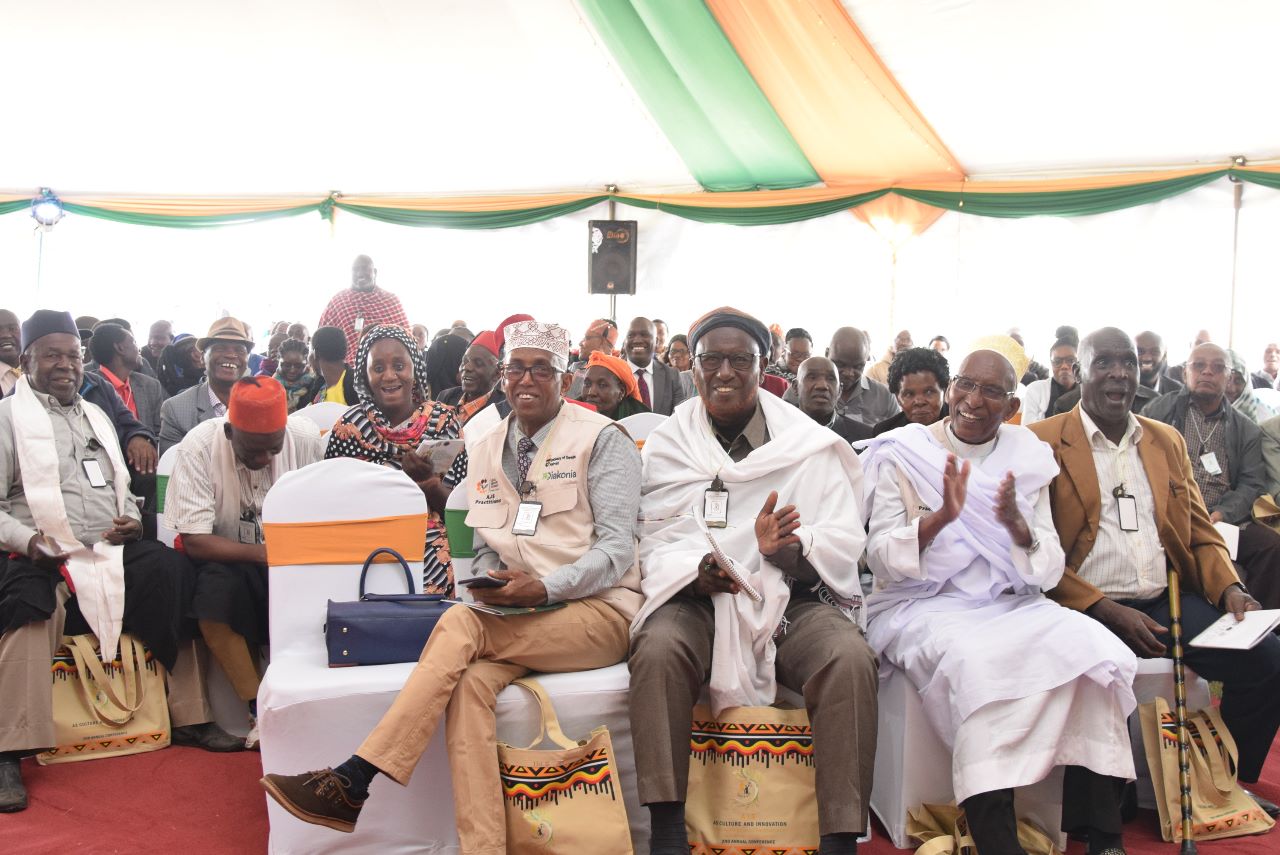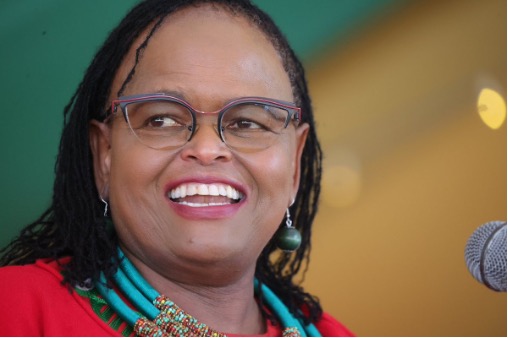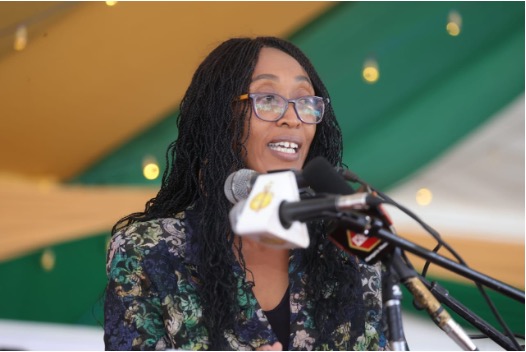UNODC Eastern Africa News and Stories
You are here: Home / News
Alternative Justice System as a Catalyst for Advancing Access to Justice in Kenya
 26 - 28 June 2023 - The Second Alternative Justice System (AJS) Conference marked a key turning point in the quest for justice. The Conference was themed “AJS as Culture and Innovation in Accelerating Social Transformation through Access to Justice”.
26 - 28 June 2023 - The Second Alternative Justice System (AJS) Conference marked a key turning point in the quest for justice. The Conference was themed “AJS as Culture and Innovation in Accelerating Social Transformation through Access to Justice”.
The conference was hosted by the National Steering Committee on Implementation of the Alternative Justice Policy (NaSCI-AJS). The multi- stakeholder committee, chaired by Hon. (Prof). Justice Joel Ngugi, spearheadsthe implementation of the AJS Policy developed with the support of the UNODC. Read more on the policy here: https://shorturl.at/qFGKW
UNODC’s support was made possible by European Union (EU) funding through the Programme for Legal Empowerment and Aid Delivery in Kenya (PLEAD) – a partnership between the Government of Kenya, EU, United Nations and civil society. The programme is improving the delivery of justice services, settlement of disputes and use of alternatives to imprisonment.
The conference brought together justice actors, practitioners, judicial officers, academics, policy makers, civil society actors, development partners, and all stakeholders in the justice ecosystem at Tangaza University College.
The gathering rallied stakeholders to continuously and emphatically support the AJS mechanism and expand the number of individuals and groups accessing justice in Kenya.
Among other development partners, UNODC was a key partner supporting the conference at which state and non-state actors discussed experiences and processes that may be used to advance access to justice for citizens through AJS, as envisioned in the policy.
Alternative justice processes reduce the burden on courts and of strengthening the links between formal and informal justice systems, rather than replacing reliance on courts.
 The three-day conference was officially opened by Kenya’s Chief Justice, and President of the Supreme Court, Hon. Justice Martha Koome, EGH, alongside other dignitaries.
The three-day conference was officially opened by Kenya’s Chief Justice, and President of the Supreme Court, Hon. Justice Martha Koome, EGH, alongside other dignitaries.
“Many Kenyans face formal, informal and systemic barriers in their attempts to access formal justice institutions. This undermines the rule of law, erode public trust and confidence in the justice system and perpetuate inequality and injustice. We have taken a firm policy position, as guided by the Constitution, that we must embrace and promote alternative justice systems as a viable and legitimate option for resolving disputes and enhancing access to justice for all Kenyans,” said Hon. Justice Koome
She emphasized on the importance of empowering local communities, encouraging dialogue, and embracing restorative justice principles.
“Formal justice systems have their place, but Africans also have their ways of resolving disputes. Ways that promote reconciliation and reintegration. UNODC is proud to partner with the Judiciary to champion AJS". Charity Kagwi-Ndungu, UNODC Regional Head, Eastern Africa.
and reintegration. UNODC is proud to partner with the Judiciary to champion AJS". Charity Kagwi-Ndungu, UNODC Regional Head, Eastern Africa.
The conference provided a platform for stakeholders from various sectors to share insights, experiences, and best practices in utilizing cultural practices and innovative approaches to promote access to justice for all. By highlighting the role of culture, the conference emphasized the importance of integrating traditional values, customs, and beliefs into the justice system to ensure its relevance and effectiveness in diverse communities.
It also recognized the potential of innovation, including technological advancements and alternative dispute resolution mechanisms, in enhancing access to justice, particularly for marginalized populations.
The conference facilitated discussions on strategies to strengthen the AJS and make it more responsive to the needs of the people. Participants explored ways to harness cultural resources and promote community participation in justice processes, fostering a sense of ownership and empowerment. They also delved into innovative approaches to overcome barriers to justice, such as improving legal aid services, promoting legal literacy, and leveraging technology to enhance efficiency and inclusivity.
 The conference also featured a series of workshops, each exploring different aspects of the AJS. Experts facilitated discussions on themes such as AJS as justice innovation, autonomous AJS mechanisms, state-based non-judicial mechanisms, practices and AJS innovations, AJS and culture in gender justice, AJS as cultural innovation, international practice of AJS, mainstreaming african notions of justice in the Kenyan judicial process, third party AJS mechanisms, court annexed AJS mechanisms among others.
The conference also featured a series of workshops, each exploring different aspects of the AJS. Experts facilitated discussions on themes such as AJS as justice innovation, autonomous AJS mechanisms, state-based non-judicial mechanisms, practices and AJS innovations, AJS and culture in gender justice, AJS as cultural innovation, international practice of AJS, mainstreaming african notions of justice in the Kenyan judicial process, third party AJS mechanisms, court annexed AJS mechanisms among others.
Other partners who supported the conference include the Food and Agricultural Organisation, Federation of Women Lawyers, Kenya, National Legal Aid Service, Pamoja Trust, International Commission of Jurists, International Development Law Organization, Legal Resources Foundation, KELIN, several Civil Society Organizations among others.
For more information, please contact:
- Head of the Crime Prevention and Criminal Justice Programme, in UNODC Eastern Africa, charity.kagwi@un.org
More information